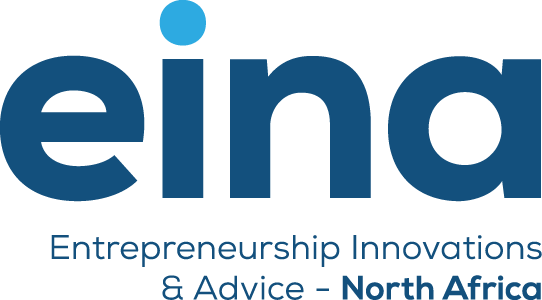Impact Investing in Egypt: From Fragmentation to Opportunity

Impact investing in Egypt is still at an early but promising stage. The Global Impact Investing Network (GIIN) defines impact investing as “investments made with the intention to generate positive, measurable social and environmental impact alongside a financial return.”
The appetite for impact investments in Egypt is significant, but the ecosystem remains nascent and fragmented. A small but growing number of funds are now experimenting with different approaches. Some have been set up with international support to invest in growth-stage companies, combining professional commercial investment management with a commitment to measurable social outcomes. Others are donor-backed initiatives that provide grants and technical support to enterprises with the aim of creating decent jobs. There are also emerging collaborations between local social enterprises and global networks, aimed at building capacity, offering mentorship and opening doors to new markets.
Despite this activity, the landscape lacks cohesion. One of the biggest challenges is the absence of a common definition of what counts as impact. For some, it looks like philanthropy with a financial twist. For others, it means investments that must deliver competitive financial returns alongside social benefits. This inconsistency makes it difficult to compare results, hold funds accountable or build trust with investors. Measurement is inconsistent, targets are often unmet, and many initiatives remain at the concept stage rather than fully operational.
Reliable data on the total number, size and assets under management of impact investments in Egypt is not publicly available, which underscores the need for better tracking and transparency. While global estimates put the total size of the impact investing market at around USD 1.57 trillion (GIIN, 2024), comparable figures for the Middle East & North Africa region or Egypt remain limited. This data gap highlights one of the ecosystem’s main challenges and the opportunity to establish a regional database for impact-oriented investments.
Still, there are reasons to be optimistic. In just the past two years, new platforms have begun to emerge that try to bring different players together, introduce shared metrics and create a more connected ecosystem. Promising initiatives such as Catalyst Capital Egypt, an impact fund partnering with the UNDP, and the Impact Investing Initiative (III), an ecosystem integration platform that is rapidly gaining momentum, demonstrate growing coordination and signal that Egypt is gradually moving toward a more structured and aligned impact investment ecosystem. There is also growing interest from mainstream financial institutions, which signals that impact investing is moving beyond a niche field into the wider investment domain.
To strengthen this momentum, Egypt could build on the Impact Investing Initiative (III)’s ongoing efforts by establishing a multi-stakeholder working group or task force on impact investing, bringing together government, investors and development partners to align definitions, develop a shared set of key performance indicators and promote common reporting frameworks. These could draw on international standards such as the Impact Reporting and Investment Standards Plus (IRIS+) and the United Nations’ Sustainable Development Goals to ensure comparability and credibility across ecosystem players.
This progress closely aligns with the African Development Bank Group’s Jobs for Youth in Africa (JfYA) Strategy, launched in 2016 to help countries scale up responses to the youth unemployment crisis, with a strong emphasis on education, entrepreneurship and private sector engagement. Building on this vision, the Bank established the EInA -Employment Innovation and Advice- platform in 2020 as a regional initiative across Egypt, Morocco and Tunisia to support governments in designing, piloting and institutionalizing innovative policies for large-scale job creation. EInA’s work is fully aligned with the JfYA strategy and its focus on scaling national programs provides the foundation for exploring innovative financing mechanisms such as impact investing that can deliver sustainable opportunities for youth employment across the region.
The value of impact investing for job creation is measured by the kind of jobs it creates. Counting jobs alone is not enough, the real measure is whether those jobs are sustainable, allow for growth and empowerment, are fairly paid and decent. Just as important is the integration of technical assistance as capital on its own will not enable businesses to thrive. Entrepreneurs need guidance, mentoring and access to networks if they are to survive and grow. Beyond employment, impact should also be assessed in relation to environmental sustainability, social inclusion and community well-being.
Egypt is well placed to move in this direction. It has a dynamic base of entrepreneurs, a policy environment that increasingly supports small and medium enterprises and international partners who are prepared to engage if the right structures are in place. What is still missing is coordination and a credible mechanism that can align stakeholders to transform scattered initiatives into a more coherent ecosystem. Building data infrastructure, adopting shared metrics and formalizing collaboration platforms would represent practical next steps to accelerate progress.
With this in mind, the African Development Bank, through EInA, is exploring how impact investing could complement its mandate and is reaching out to partners for collaboration in order to maximize outcomes. One idea under consideration is a Regional Impact Investment Fund for Entrepreneurship and Jobs, focusing on Egypt, Morocco and Tunisia. While this work is still under development, the potential is clear, if designed well, such a vehicle could help translate into real jobs, lasting businesses and tangible opportunities for those who need them most. A broader, well-defined impact investing ecosystem, grounded in clear definitions, better data and actionable coordination, would allow Egypt and its partners to transform this emerging field from fragmentation to opportunity
